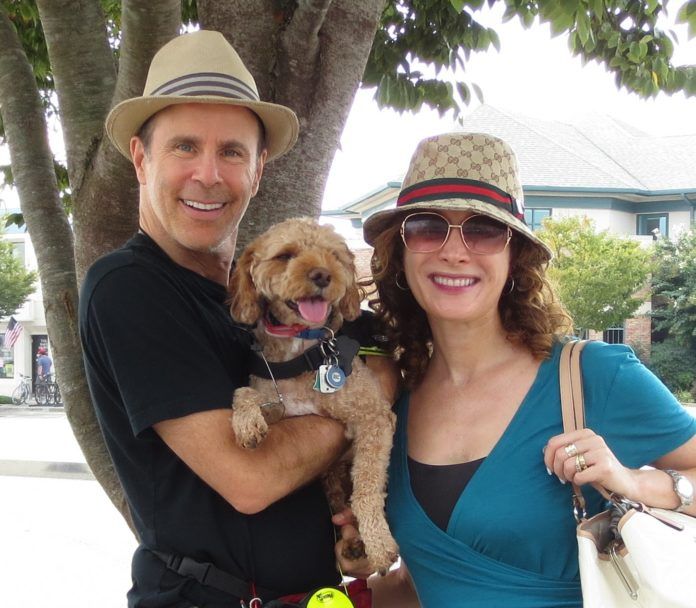
Q My 20-pound cockapoo, Bentley, is a very docile service dog who never barks outside the home or for food or water. But strangely, even if he’s lying peacefully on the floor, as soon as my wife and I embrace in affection, or lie down next to each other, he runs over to us and barks until we stop and give him some attention (which I’m sure isn’t right but we love him to death). He never becomes aggressive or threatening at all. He just barks, almost as if he’s jealous, feels left out of the intimacy, or simply wants the attention. It’s comical to see and we laugh about it. Is this normal behavior? What’s the cause?
Robert Weil
Hummelstown, Pennsylvania
Dear Dr. Weil,
A First, rest assured that you are not alone. There are many dogs who believe that, like the preacher in Footloose, it is their duty to keep eager bodies away from each other. Different dogs have different reasons for doing it. Some, like your pooch, may indeed be exhibiting a kind of jealousy. Like toddlers, they are used to the attention being focused on them, and it could make them feel anxious or uncomfortable if their “parents” display affection without including them. They want to be part of the action, no matter what it is.
Other dogs may feel confused. While many of our dogs let us hug and kiss them, these are not behaviors that come naturally to them, so seeing these actions could make them feel unsettled.
Indeed, some dogs may misinterpret intimacy as confrontation or aggression and feel they need to break up the fight. A dog will often get between two other dogs who are acting hostile toward each other to diffuse the situation. We can assume a dog might apply that strategy to what he perceives as a hostile encounter between two humans.
There’s also plain old guarding behavior. Dogs such as border collies and other herding breeds feel they need to be in charge of all movement, that it is their call when others should move and when they should stay still. If movement has an energetic feel to it rather than a calm one, they’re going to want to take control.
Finally, some dogs are just plain bored and are only too glad for an opportunity to shake things up. “Nothing going on but the TV, as usual…ah, some action!”
It is not wrong of you to give Bentley some attention when he reacts vocally and comes over while you and your wife are acting affectionately, especially if that’s all it takes to calm him down. But in some households, dogs’ reactions to intimacy really get in the way. There are a few methods to go about helping a dog to accept physical displays of love between the adults in the household, whether that’s just holding hands while watching television or moving things to another level.
Give your pet something to do that’s incompatible with interrupting your activity. For instance, you can fill a Kong with a delectable frozen treat and put it on the dog’s special mat in another room. He can’t be busy with that and interrupting you at the same time.
Desensitize your pet gradually. (This could be especially important if your dog is really interfering, perhaps to the point of threatening harm to one of you.) Start by simply placing your hand on the other person’s shoulder. If your dog can tolerate that, praise him and give him a treat. Once he can tolerate that, give him a treat only when he can tolerate your hand on the other person’s shoulder and your giving that person a kiss on the cheek — and so on. In that way, you are shaping his behavior during times of intimacy. (See the article on page 1 for more on behavior shaping.) A remote reward delivery device such as the Treat and Train Remote Reward Trainer or the Pet Tutor can also be helpful. Such tools will allow you to reward your dog for good behavior from a distance without having to give him attention.
Make sure your dog gets plenty of satisfying doggie time — walks, learning tricks, taking classes, socializing. The more your dog is engaged in enjoyable dog things, the less apt he’ll be to put a damper on activities that are strictly for the people in the household.





